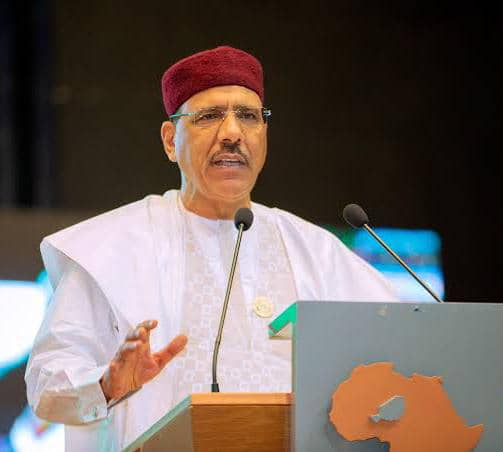One year after being deposed in a military coup, Niger’s former president Mohamed Bazoum remains in strict detention in Niamey, facing the prospect of a trial that concerns his supporters.
Background of the Coup:
Bazoum was overthrown on July 26, 2023, by General Abdourahamane Tiani, the head of his presidential guard. Elected in 2021, Bazoum has not resigned and continues to assert his legitimacy as president of the Sahelian country.
 Advertorial
Advertorial
Detention Conditions:
Since the coup, Bazoum and his wife, Hadiza, have been held at the presidential palace in Niamey.
His last public appearance was on August 19, 2023, during a visit by a Nigerian mediator. Conditions worsened in October when the military accused him of attempting to escape, a claim his lawyers dispute.
Bazoum’s phone has been confiscated, and only his doctor is allowed to visit twice a week. Despite these harsh conditions, Bazoum remains resolute.
 Advertorial
Advertorial
“According to him, they are physically fine. Their spirits are very high. The president is committed to continuing his resistance,” said Hamid N’Gade, Bazoum’s communications advisor.
A source close to him praised Bazoum’s courage and commitment to democracy.
In January, Bazoum’s son, Salem, who had been detained with his parents, was provisionally released and has since relocated to Togo.

Military Accusations:
The Economic Community of West African States (ECOWAS) Court of Justice ordered Bazoum’s release in mid-December, but the ruling has not been honored.
Niger has since withdrawn from ECOWAS, and last month, the Court of State, created by the ruling military, lifted Bazoum’s presidential immunity.
 Advertorial
Advertorial
Bazoum faces charges of “conspiracy to attack the security and authority of the state” and “treason,” accused of seeking support for armed intervention during the coup from French President Emmanuel Macron and US Secretary of State Antony Blinken.
“This court has no legitimacy. These people were appointed by a putschist who was never sworn in,” said Mohamed Seydou Diagne, one of Bazoum’s lawyers.

Possible Trial:
The removal of Bazoum’s immunity paves the way for a trial, though no date has been set.
Potential sentences are severe, with treason carrying the death penalty and plotting against the state potentially leading to life imprisonment.
A trial could provide Bazoum the opportunity to speak publicly for the first time since the coup.
“This is an exceptional jurisdiction that does not meet any of the fundamental guarantees of the right to a fair trial,” said Diagne. “We do not accept sham trials,” he added, emphasizing the determination of the ruling military to convict Bazoum.
 Advertorial
Advertorial
Support for Bazoum:
Initially, many Western leaders demanded Bazoum’s immediate release.
ECOWAS imposed economic sanctions on Niger’s ruling military and even threatened military intervention to restore Bazoum.
However, the intervention did not occur, and sanctions were lifted in February.
Recent months have seen fewer international calls for Bazoum’s release.
 Advertorial
Advertorial
“He is under unacceptable pressure from the junta, which has taken him hostage. We are worried about the lifting of his immunity and the legal sham that is likely to follow,” said a French diplomatic source. The International Monetary Fund, which has resumed aid to Niger, declined to comment on Bazoum’s situation.
Rebel movements in Niger demanding Bazoum’s return to power have recently claimed responsibility for attacks on a major oil pipeline.


















